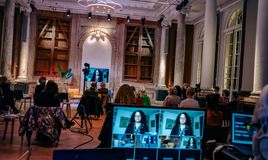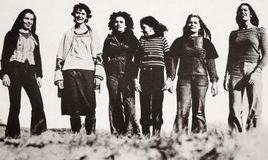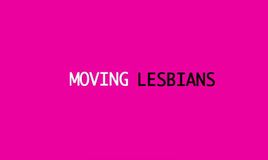The lessons of Dolle Mina (‘Mad Mina’)

Half a century after the first steps in their movement, Dolle Mina is still one of the most acknowledged groups in the Netherlands. The feminist group has become the symbol for the second feminist wave.
Atria and F-Site present four informational videos and – only in Dutch – corresponding educational packages about the Dolle Mina’s and their actions, and other Dutch feminist groups that became active during the ‘second wave’.
The straitjacket of women
In 1969 the feminist group Dolle Mina was founded. With various tongue-in-cheek actions, the Dolle Mina’s showed that they wanted to shed the straitjacket of women. Too often women had to deal with injustice and subordination. Dolle Mina demanded (among others) ‘equal pay for equal work’, and ‘all education available for women’.
Boss of My Belly
One of the most important action points of both Dolle Mina and other women’s right organisations from the seventies was ‘abortus vrij’ (abortion free). Women wanted to be able to make decisions about their own bodies. They demanded abortion to be removed from criminal law. Dolle Mina coined the well-known phrase ‘Baas in Eigen Buik’ (Boss of My Belly) to draw attention to the right for women to choose an abortion without being prosecuted.
To whom belong the streets?
With the ‘Aktie hoge nood’ (Action dire need) Dolle Mina drew attention to the lack of public toilets for women. They showed that public spaces were predominantly equipped for male use. Women didn’t feel equal to men in the streets. By catcalling after men the Dolle Mina’s created a role reversal. And with the creation of women’s magazines, women’s festivals, and places for women to meet, women claimed back their place in public life
Feminism for everyone
With her tongue-in-cheek behaviour Dolle Mina was mostly aimed at white, heterosexual women. Women who didn’t recognise themselves in this group, started their own groups in the late seventies and early eighties. In women’s rights groups like Paarse (Purple) September, Sister Outsider and Flamboyant, the focus shifted to the experiences of lesbian women, black women and women with a history in immigration.
The lessons of Dolle Mina are developed and brought to you by:
- Atria Institute on gender equality and women’s history
- Educational platform F-Site
The syllabus was made possible by the Prince Bernhard Culture Fund and the Aletta Jacobs Fund.




